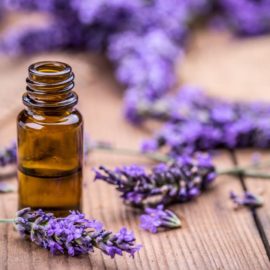According to a study, 71% of the world’s population identifies as having sensitive skin. In general sensitive skin is defined as a syndrome that deals with unpleasant sensations that occur as a response to any sort of stimuli that disturb the balance or health of the skin barrier. Whether a person has dry, oily, or combination skin, they can deal with skin sensory issues or skin sensitivities. To combat these reactions, occlusive skin care is often recommended by dermatologists to help with skin sensitivities but what is occlusive skincare exactly? Keep reading to find out how occlusive skincare can help treat sensitive skin.
Content
Knowing Your Skin: Types of Sensitive Skin
Many different things can trigger sensitive skin resulting in the deterioration of the skin barrier. That’s why it’s imperative to know what kind of sensitive skin one may have. In essence, there are 4 significant types of sensitive skin:
- Naturally Sensitive Skin
Genetically, it’s possible to simply have skin that is naturally sensitive and reacts to several factors. While naturally sensitive skin is not a skin disease in itself, it can be linked to other conditions like eczema, rosacea, and psoriasis. - Environmentally Sensitive Skin
Unlike naturally sensitive skin, those with environmentally sensitive skin will only experience unpleasant reactions when the skin comes into contact with outside stimulants like sun exposure, cigarette smoke, or pollution. These stimulants often cause a sensation of stinging, irritation, or itchiness. - Reactive Skin
Reactive skin is the type of sensitive skin that negatively responds specifically to active or non-active skincare ingredients. This could lead to skin redness, inflammation, or heat production wherever the product comes into contact with the skin surface. - Thin Skin
Thin skin is a type of skin sensitivity that people can develop due to age. As people age, the skin naturally becomes thinner making it more susceptible to possible irritants and stimulants that cause a negative reaction.
Skincare to Avoid for Sensitive Skin
- Harsh Exfoliating Acids
As an exfoliant, AHA and BHA can be quite irritating to the skin barrier. AHA and BHA can also cause higher sun sensitivity which will possibly trigger unpleasant reactions. It would be best to find a different exfoliating product but if necessary, a low-concentration AHA or BHA product can be used so as to not overstimulate the skin surface. - Alcohol
Alcohol is a common ingredient in many skincare products but can actually cause one’s skin barrier to deteriorate or weaken. With the skin barrier weakened, it’s possible that water and moisture will not be effectively retained by the skin causing it to be unbalanced and more susceptible to irritants and stimulants. - Aggressive Preservatives
Though most people only look at the active ingredients in their skincare products, those with sensitive skin should look out for preservatives that may possibly cause irritation or damage the skin barrier. Aggressive preservatives may cause regular irritation, itchiness, or redness in some cases but may also develop into contact allergic dermatitis which can cause rashes.
What is Occlusive Skin Care?
To address the issues of sensitive skin, many dermatologists would recommend a formula that has occlusive skin care properties in its ingredients. Occlusive skin care products are great for sensitive skin as they provide protection to the skin barrier through hydration and prevention of water loss. Rather than only using emollient products which are classified as a moisturizer, occlusive skincare will hydrate but also creates a protective barrier around the skin to protect it from outside stimulants. Additionally, there are many natural ingredients that have occlusive properties that are easier tolerated by the skin making it a safer option for sensitive skin
How to Know if a Product is Occlusive
While there are many skincare ingredients that work well with the needs of sensitive skin, one containing oils usually has occlusive properties. Oils are also some of the most most accessible and beneficial occlusive ingredients for the skin. Here are the top 3 oils that can be added to any sensitive skincare routine:
- Jojoba Oil
Jojoba oil is one of the best oils for sensitive skin as studies have shown that it is one of the most similar to the oil naturally produced by human skin. This means that there is very little possibility that a negative reaction or any damage to the skin barrier will occur. Additionally, jojoba oil is derived from seeds that produce wax esters containing occlusive properties that form a thin protective layer on the skin aiding in hydration and prevention of water loss. - Sweet Almond Oil
Like jojoba oil, sweet almond oil is well tolerated by sensitive skin. This oil has a high content of unsaturated fatty acids like linoleic acid which can reduce transepidermal water loss keeping the skin’s protective barrier hydrated and balanced. - Avocado Oil
Similar to jojoba and sweet almond oil, avocado oil can help protect the skin barrier by preventing water loss. In addition to this, it also has vitamin A and Vitamin E which can help cell turnover, collagen production, and water retention.
Be Sensitive to Your Skin’s Needs with Provital
Protect the skin barrier and take care of sensitive skin with Provital’s occlusive OilyCares Line. Comprising several natural occlusive oils, the OilyCares line provides multiple options for occlusive skin care targeted for different skin sensitivities including Provital’s Jojoba Oil. Described to be moisturizing and filmogenic, Provital’s jojoba oil is derived from naturally sourced Simmondsia Chinesis plants to ensure sensitive skin consumers can well-tolerate this occlusive skin care product while improving skin health. Having all the attributes of a good occlusive skin care product, this jojoba oil is sure to protect the skin barrier and help address any sensitive skin needs.
No comments yet
There are no comments on this post yet.





Leave a comment